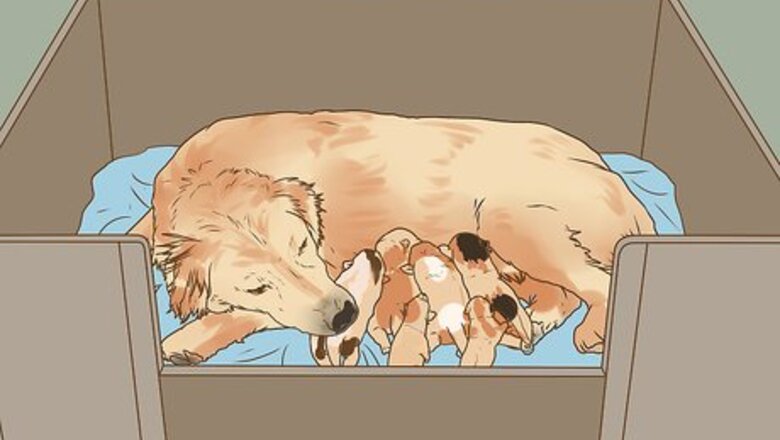
views
Encouraging the Mother Dog to Nurse
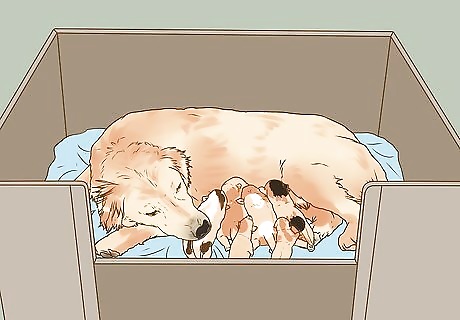
Create a private space for the mother and her puppies. A mother dog and her puppies need a clean, warm, and quiet place to nurse. Make sure you keep the temperature constant, and provide the mother and puppies with plenty of blankets and pillows for warmth. If possible, give the dogs a separate space in the house, partitioned by a door or gate.
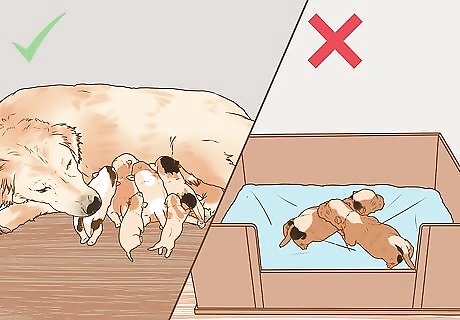
Do not separate the mother from her puppies. It is critical that you do not separate a new mother from her litter. The mother should be with the puppies at all times to encourage proper feeding habits and ensure the puppies receive adequate nutrition. Allow the mother time away from the puppies to defecate and urinate, but then return her to her litter.
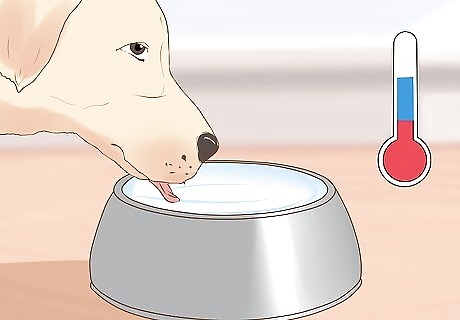
Give the mother dog warm liquids. Sometimes a mother dog cannot nurse her litter because she does not have enough milk available. This can sometimes be complicated by dehydration. Try giving the mother dog warm or lukewarm water. You can also give her chicken broth, as the salt may increase her thirst.
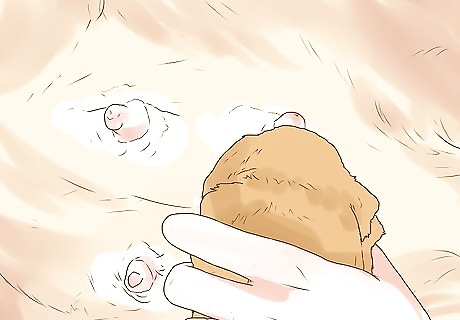
Manually assist the mother dog. If it appears as though your mother dog is not nursing her puppies, as she should be, you can gently encourage her to do so. Put the puppies up toward the mother dog’s teats. Allow the puppies to nurse.
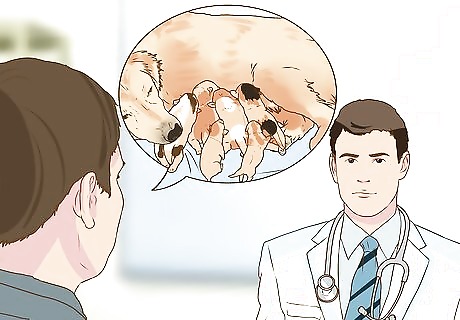
Visit your vet. If the mother dog is reluctant to nurse her litter, or if the puppies are exhibiting signs of malnutrition, you should set up an appointment with your veterinarian as soon as possible. A vet can help diagnose the root of the issues, as well as help you set up a manual feeding plan for the puppies.
Identifying Signs of an Underfed Litter
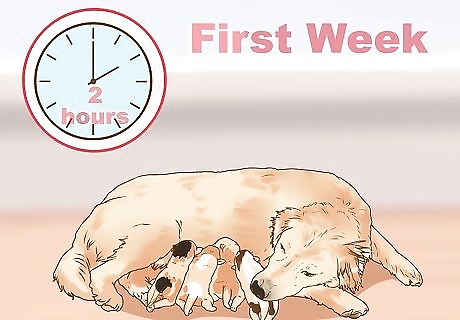
Make sure puppies nurse every two hours for the first week. In order for newborn puppies to receive adequate nutrition, they should be nursing approximately once every 120 minutes. Keep an eye on the puppies and monitor the litter to make sure they are nursing properly. Do not, however, get too close to the mother and her puppies as this could cause the mother to exhibit protective or defensive behavior.
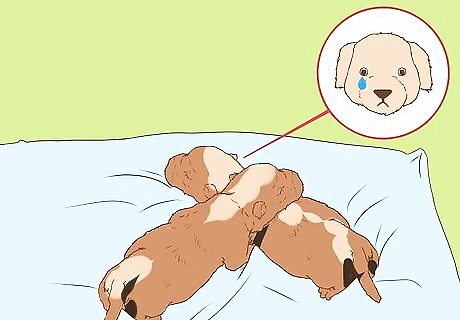
Look out for constant crying. If your dog’s puppies are constantly crying, it could be an indicator that the puppies are not receiving enough nutrition. Keep an eye on puppies who are constantly crying, as it could be a sign they are not getting enough milk, and you might need to supplement by bottle feeding. Bottle-feeding is a good way to supplement the puppies' nutrition.
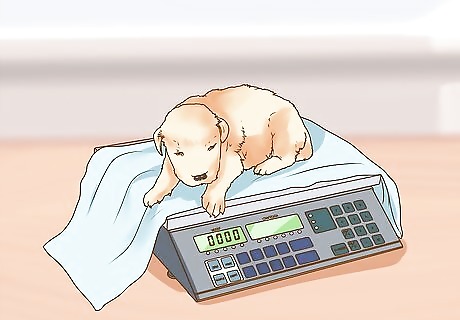
Watch for weight gain. Puppies should be rapidly gaining weight. The puppies should double in weight each week. If your dog’s puppies are not gaining weight, it could be a sign they are not consuming enough milk from their mother. In this case, you will want to supplement to ensure they are receiving proper nutrition and gaining weight.
Making Sure Your Nursing Mother Dog Is Properly Nourished
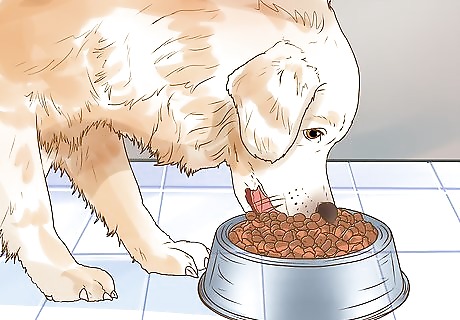
Offer the mother dog plenty of dog food. It is critical that the mother dog has access to enough food while she is nursing her puppies. Nursing mothers need to consume more calories than non-nursing dogs, and, as a result, your dog will be eating more than usual. Read the label carefully on your mother dog’s food. It should include recommended portions for a lactating mother dog. It is acceptable to leave a constant supply of food out for a lactating mother and allow her to eat at will, as opposed to predetermined portions at scheduled mealtimes.
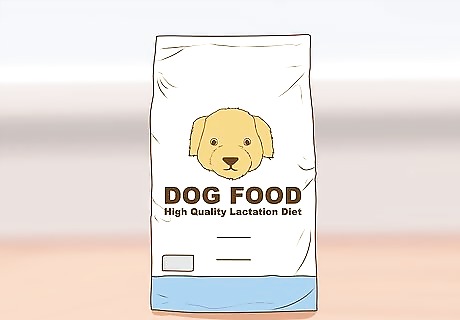
Feed the mother a high quality lactation diet. A nursing mother dog will need to eat a diet of easily digestible, high quality food that is formulated for lactating dogs. The dog food should contain at least 17 percent dietary fat, at least 29 percent protein, and less than 5 percent dietary fiber. This diet will support milk production and puppy growth, optimizing the nursing experience for all. Ask your veterinarian for dog food suggestions for your nursing dog.
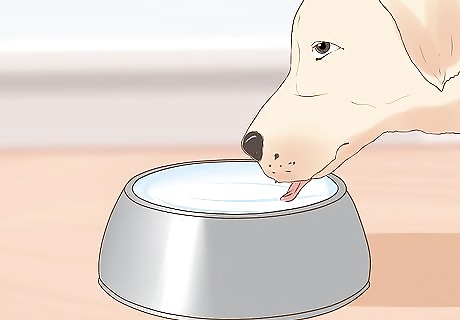
Give the mother dog lots of fresh water. If your dog is nursing a litter of puppies, it is important that she is hydrated at all times. A lactating dog will consume more water than she did while she was not nursing her puppies. It is important that she does so to prevent dehydration, which can cause problems for the mother and her puppies. Make sure you give the mother dog constant access to a large bowl filled with fresh water, and that you refill the bowl frequently.














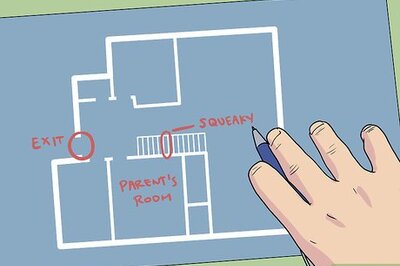

Comments
0 comment